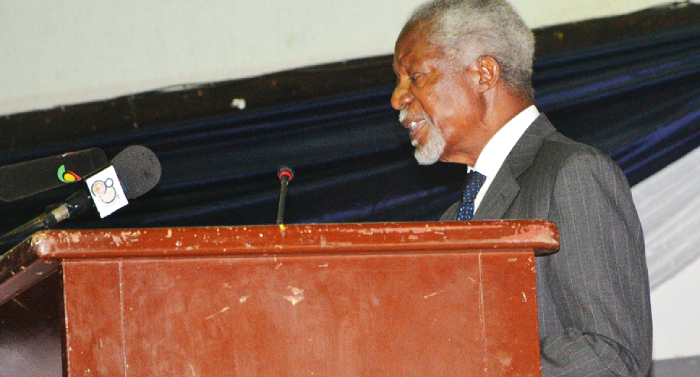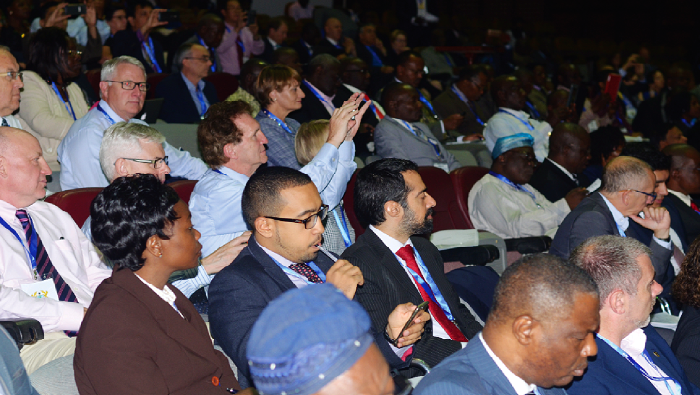
Conference of Association of Commonwealth Universities opens in Accra
Heads of higher education institutions in the Commonwealth are meeting in Accra to dialogue on the responsibilities of higher education institutions in social and economic development.
Advertisement
The three-day meeting, the 2016 conference of the Association of Commonwealth Universities (ACU), is the first to be held in Africa and Ghana after 40 years of its inception.
The biennial conference has brought together more than 400 participants, comprising leaders and managers of higher educational institutions, deputy/pro- vice-chancellors, policy makers, researchers, among other stakeholders.
The conference is being held on the theme: ‘Defining the responsible university: society, impact and growth'.
Some Dialogue areas
The conference will engage members and other education stakeholders in discussions focusing on the impact of universities on innovation, research and development, civil society, funding and access, employment, and the role and place of government and the corporate sector in building the skilled leaders of tomorrow.
Hosted in partnership with Vice-Chancellors' Ghana (VCA), this year's conference will provide a platform for senior university staff to debate key issues in higher education and explore shared solutions with a diverse range of international colleagues.
A former Secretary-General of the United Nations, Busumuru Kofi Annan, and Professor Jan Thomas, chair of the ACU Council and Vice Chancellor of the University of Southern Queensland, Australia, attended the opening ceremony.
President Mahama’s address
In a statement read on his behalf to open the conference, the President, Mr John Dramani Mahama, expressed the optimism that higher education could contribute largely to global efforts to address socio-economic development challenges.
He said higher institutions of education could do that by producing the required skilled labour for the job market to accelerate socio-economic development.

Some participants in the conference. Picture: NII MARTEY M.BOTCHWAY
What has been established is a seemingly disconnection between the graduates in terms of acquired skills and what the employers are looking for,” he said.
Mr Mahama, therefore, recommended a deeper dialogue between institutions of higher education and industry to close the gaps.
We need to more importantly also interrogate the earlier principles on which our universities were established to make a better forecast of what society expects of the institution of higher education towards national and international development,” he said.
Improvement in tertiary education
In his keynote address, Busumuru Kofi Annan, who is also the Chacrllor of the University of Ghana, Legon, said he had the privilege to witness the substantial improvement in tertiary education in Ghana and its impact on society.
“I am pleased that we have the opportunity today to showcase the contribution that institutions of higher education are making in Ghana,” he said.
Busumburu Annan said the growth of higher education institutions in Africa in recent years had been impressive.
Recounting what had propelled the impact of tertiary education institutions in Ghana and Africa, he said partnership among the private sector, the universities and governments were on the rise, enrolment rates were increasing, diversity of topics studied had grown and Africa’s universities were playing even greater roles in addressing Africa’s challenges.
Those developments, he said, confirmed that education was a catalyst for progress in every society.
“To maximise the benefits of universities on societies, they must go beyond just transferring skill or conferring qualifications, though crucial to impacting the skills required on the labour market,” he said.
Busumburu Annan said he was aware that the demands on the universities were greater with limited resources, which meant that priorities had to be established with difficult choices made.
“Nevertheless we must develop strong and durable bonds between the institutions of higher education and the society of which they are an integral part.”
Busumburu Annan also addressed other issues including the deficit of democratic governance and impact on the future of the younger generation, the impact of education on governance and democracy, citizen engagement in governance.
For her part, Professor Jan Thomas, commended the government of Ghana and the VCG for all the support they had given to the conference.
In his remarks, the Vice-Chancellor of the University of Cape Coast and the Chair of the local organising committee,Professor Domwini Dabire Kuupole, appealed to the participants to share ideas that would redefine the responsibilities of higher education institutions in socio-economic development.




